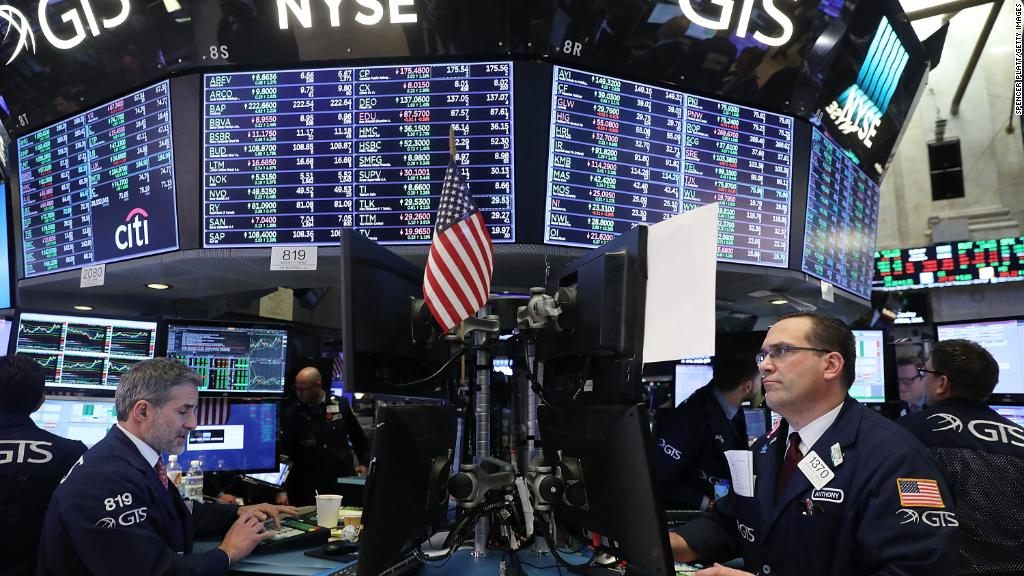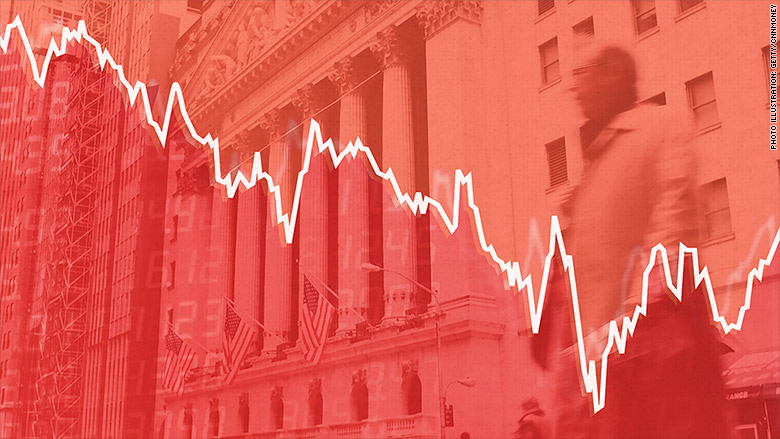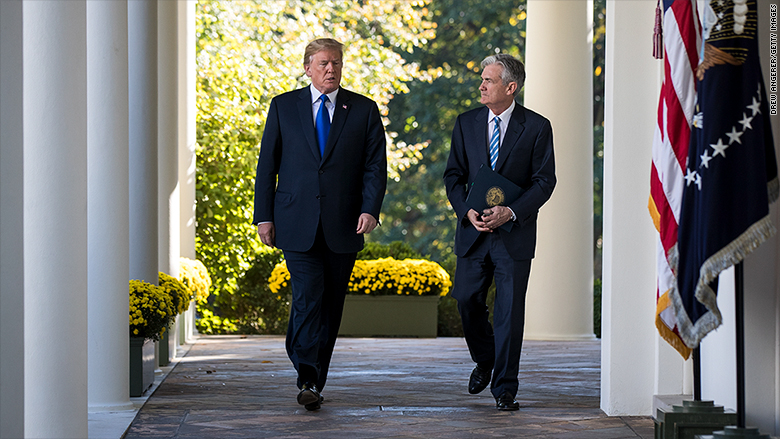
Quest's Profitable Moment
In this week's (barely) profitable moment, a reality check for investors has come like a slap in the face to Wall Street.
On the surface, the sell-off isn't one for the history books. A Black Monday it is not. Normally, when the Dow drops by 2.5% to 3%, it doesn't ruffle the feathers of the hardened traders I've come to know down on the floor of the New York Stock Exchange.
My daily routine for "Quest Express" has me spending hours on the floor with the traders and market makers at the NYSE. They've been at this a long time, and even they say this week's volatility is like nothing they've ever seen.
Investors have seemed to rush to the exit one minute, and run back into the market the next.
On Monday, the swing on the Dow was more than 1,600 points.
The Dow went on a roller coaster ride Tuesday, oscillating between a gain and a loss 28 times throughout the session. The Dow fell another 1,000 points Thursday.
Sign up for the weekly Quest newsletter in your inbox
Why? Well, that's anyone's guess. It could be the computer algorithms and high-frequency trading. Or maybe it's the fear of interest rate hikes from the Federal Reserve and its new chair (only a week into the job). Some are blaming the latest Wall Street financial product that no one seems to understand.
Regardless of the cause, the simple fact is that the party is over. Say farewell to interest rates near zero, not just in the United States, but in the U.K., in Europe and maybe even Japan!
It was fun while it lasted. Now the lights have come on and the punch bowl has been removed. Yes, some may have quite a financial hangover to contend with, but Financial Armageddon this is not.
Extreme turbulence rocks Wall Street

Fasten your seat belts. The stock market has gone from boring to bananas -- in the span of just two weeks. After months of unusual calm, fears about inflation and soaring bond rates have taken over Wall Street. After dropping by a spooky 666 points on Friday, the Dow plunged by a record 1,175 points on Monday. An attempted rebound was thwarted as stocks tumbled again on Thursday. The good news is the market turmoil doesn't mean the economy is in trouble. Growth still looks strong. A sell-off was long overdue. Extreme optimism about booming stocks made a tumble nearly inevitable. And here it is.
-- Matt Egan
Everyone's worried about interest rates

Will the Federal Reserve have to raise rates faster this year? Investors seem to think so. Jitters over higher inflation and the Fed helped send stocks plunging this week. It'll now be up to Jerome Powell, the new Fed chairman, to carefully guide those rate hikes without sparking a U.S. recession.
-- Donna Borak
Why Americans aren't going to the Olympics

Americans are skipping out on the Winter Olympics this year. Flight bookings from the United States to South Korea in February were up 24% compared with the previous year, according to data from travel intelligence firm ForwardKeys. That figure would normally be in the triple digits for such a big event, said a ForwardKeys spokesman. Blame the lack of interest on high travel costs, a shortage of hotel rooms and a remote location: PyeongChang, where the games take place, is a two-hour train ride from the South Korean capital, Seoul. And rising tensions with North Korea don't help.
-- Danielle Wiener-Bronner
German workers win right to 28-hour work week
A large chunk of labor union IG Metall's 2.3 million members are getting more flexible working hours and a big pay raise. Workers at many of Germany's top engineering firms -- including Mercedes-Benz owner Daimler (DDAIF) -- can now choose to work 28 hours a week for up to two years before returning to the standard 35-hour week. IG Metall said it will help employees with children and older relatives. It is expected to have ripple effects across German industry. The economy could benefit, too, as the workers who are covered go out and spend more.
-- Nathaniel Meyersohn
Quick takes
Facebook (FB)'s Europe executive has incurable cancer
Ryanair (RYAAY)'s CEO told pilots to go ahead and strike.
A European bank was caught laundering Mexican drug money.
Tim Geithner says our political system looks terrible.
Bitcoin continues to puzzle U.S. regulators.
What's next
Food earnings extravaganza: Restaurant Brands (QSR), PepsiCo (PEP), Dr Pepper Snapple (DPS), Coca-Cola (KO), Campbell (CPB), JM Smucker (SJM) and Kraft Heinz (KHC) all report earnings next week. With Dr Pepper's Keurig (GMCR) merger, Burger King (BKC)'s odd net neutrality ad, Pepsi's Super Bowl presence, Coca-Cola's recycling initiative and Smucker's price hikes, there's a lot to discuss.
Fed in focus: As new Federal Reserve Chairman Jerome Powell wrestles with the possibility of growing inflation, the Fed will release its minutes from outgoing Chairwoman Janet Yellen's final board of governors meeting. The Fed will share its minutes on Wednesday.
Olympics: The opening ceremony is Friday in PyeongChang. American media companies will try to capitalize on the coverage, and South Korea will try to recoup the $13 billion cost to host the games.


